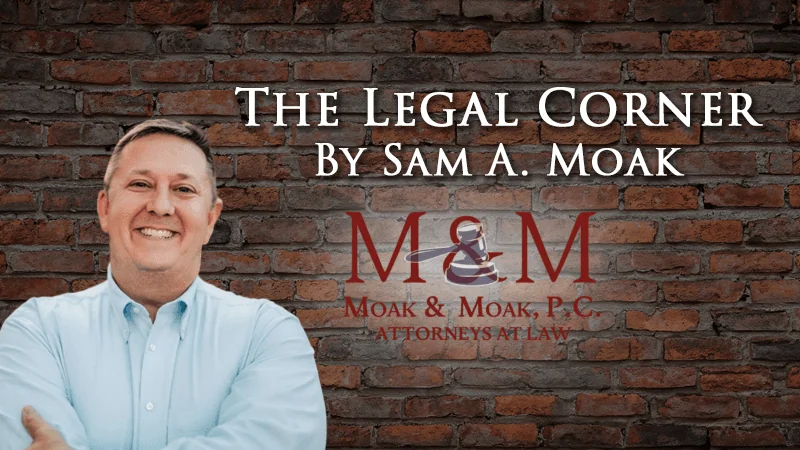The information in this column is not intended as legal advice but to provide a general understanding of the law. Any readers with a legal problem, including those whose questions are addressed here, should consult an attorney for advice on their particular circumstances.
It is time of year again, Sam Houston State University Fall semester has begun. With the start of a new Fall semester, there is a flurry of activity with regard to rental property. Whether you own an apartment complex, rent house(s) or just rent a garage apartment, there are some things you should consider as a landlord.
A landlord and tenant relation exists between a landowner as landlord and another party occupying the landowner's real property as tenant. With this relationship come certain duties and responsibilities.
The relationship is always created by contract, but the contract may be either verbal or written. Additionally, the term of the lease can vary from month to month, semester to semester or school year to school year.
Most lease agreements involve a security deposit. A security deposit is any advance of money, other than an advance payment of rent, that is primarily intended to secure performance under a lease of a dwelling. A landlord has the duty to refund the security deposit to the tenant on or before the 30th day after the date the tenant surrenders the premises. A landlord may be liable for withholding the security deposit in bad faith in certain situations. This could subject the landlord to monetary damages amounting to three times the amount of the deposit and the tenant’s reasonable attorney’s fees. Additionally, a landlord is prohibited from retaining any portion of a security deposit to cover normal wear and tear. Finally, for those landlords who may use written leases stating that the return of the security deposit is contingent upon advance notice of surrender of the premises, then be aware that such language must be underlined or printed in conspicuous bold print in the lease. So landlords should be very careful when dealing with the return of a tenant’s security deposit.
Landlords should also inspect their security devices. Texas law requires certain security devices be installed on leased premises. Leased premises includes rooms in a dormitory or rooming house, mobile home, single family house, duplex, triplex, apartment or condominium. Windows and doors have certain requirements depending on their design and year of construction. For example, conventional, sliding and French doors all have different requirements.
Another little known fact is that landlords must disclose the name and address of the holder of record title, according to the deed records in the county clerk’s office, of the dwelling rented by the tenant. Failure to comply with this could result in the landlord being liable for one month’s rent plus a monetary penalty, court cost and attorney’s fees and termination of the lease.
In Texas a landlord has no duty to make repairs in the absence of a covenant or agreement to do so. A tenant's main remedy for breach of a landlord's express covenant to repair is an action for the recovery of damages resulting from the breach. Generally, the breach does not authorize a tenant to rescind the lease contract or enable a tenant to escape liability for the payment of rent. The tenant may, however, vacate and relieve himself or herself from liability for further rent when, as a result of the breach, the premises become untenantable or unsuitable for the purposes for which they were rented. A landlord's failure to provide a promised service or facility will enable the tenant to recover damages due to such failure.
When the tenant breaches the lease agreement, then the landlord may begin a process known as eviction. This involves filing a lawsuit. Such lawsuits are filed in the Justice of the Peace court that serves the area where the property is located. Unless you are familiar with such suits, you should contact an attorney to assist you.
Landlord and tenant relationships can be advantageous for both the landlord and the tenant. However, if you are a landlord, or tenant, and things go wrong you would be wise to contact an attorney. Doing so could save you from a more costly result down the road.
Sam A. Moak is an attorney with the Huntsville law firm of Moak & Moak, P.C. He is licensed to practice in all fields of law by the Supreme Court of Texas, is a Member of the State Bar College, and is a member of the Real Estate, Probate and Trust Law Section of the State Bar of Texas. © www.moakandmoak.com


